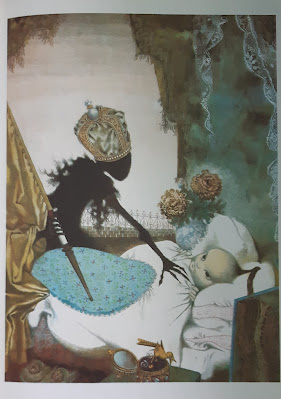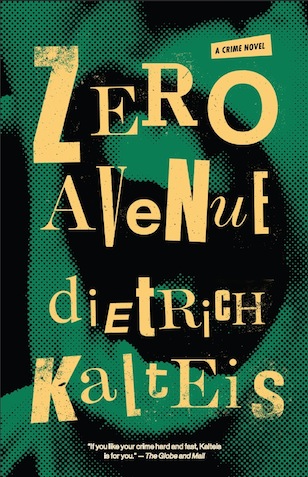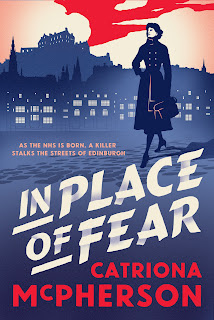Q: Share memories of being read to. Or stories you read to those close to you. Have you written stories for friends or family, not for publication?
A: I was lucky enough to grow up in a family that loved stories. My mother read us Peter Pan and our father read us Winnie the Pooh. He also read us Catch 22, which might have landed better with my older brother and sister than us younger kids, but that story is for another therapy session. Dylan Thomas’ A Child’s Christmas in Wales was a holiday standard at our home. After the divorce Pops would entertain his wild brood by dropping a poster board on the floor, give us colored pens and have us work together mapping out a fantastical world. The older kids had read Tolkien, I hadn’t, I just thought making up worlds was cool. Who knew I’d be doing that the rest of my life?
When I became a dad I was lucky to parent with Erika, a life long reader she already had a collection of children's books and we made sure our boys had the bottom shelf of a bookcase just for them. I read to the boys most nights. Introduced them to some of my favorites. When they discovered I could make up stories they started asking for two picture books (one for each of them), one of my talking stories and a song. The bedtime routine stretched to 20 minutes or more, but they slept peacefully after that so it was worth it.
My ability to make stuff up served me well as a dad. When three year old Jared asked me, “If Santa gives good kids presents, what about bad ones?”
“Bad kids get visited by Santa Monster.” I said, keeping my eye on the car ahead of us I failed to see his face. In a non-Christian home navigating Christmas’ complex and contradictory rituals is tough, (Easter? Forget about it.) Jared didn’t ask any follow up questions so I figured I’d handled the good vs bad kids question pretty well.
Nope.
Two days later a babysitter took Jared to the mall to see Santa. She brought back a picture of our son screaming in terror from his perch on jolly old St. Nick’s lap. Erika was rightfully angry, she explained to the babysitter that we didn’t force our children to sit on people’s laps. I thought I was off the hook until the sitter went home and the boys were happily watching Ninja Turtles, that’s when Erika gave me “the look.” I told her about Santa Monster. “Jared isn’t developmentally able to get your humor, or understand sarcasm.” She explained. “He takes what you tell him literally and believes it.”
“That’s his mistake,” I almost said, but she was the only one of us with any early childhood education, so I just mumbled, “I’ll fix it…”
This was one day before Christmas Eve. Santas would be triggering and unavoidable. What do I do? I didn’t want to say, “Sorry kid, you shouldn’t trust me.” I wanted Jared to grow up in a world where he could trust his father. I wanted this to be a funny story we joked about with his psychiatrist thirty-five years down the road.
My fall back plan: I stayed up all night writing and drawing a children's book staring baby Dracula and Franky, a baby Frankenstein, (yes I know Frankenstein was the doctor not the monster, but that seemed a bit complicated for a children's tale written at midnight the night before the book was due). In my story two sweet monster children tried to find out what they could expect for Christmas. Being monsters and thus bad by definition, would they get lumps of coal? If so what did one do with coal? What was coal? These monsters lived in LA and had never seen coal. Drac and Franky tried to stay up all Christmas Eve night, as they were drifting off to sleep they dreamed they saw a zombie looking monster in a red suit. The next morning under their tree they found a bicycle and a skateboard left for them by Santa Monster with a note wishing them a Merry Monster Christmas. (This is roughly the story, I wrote it forever ago so I may have gotten some details wrong.)
The book did its job. It helped Jared to not be afraid of Santa Monster, and to understand that all children deserve presents.
What I didn’t say was; Santa as seen by the predominant culture in the USA is one judgy bastard. What kinda guy spends his time spying on kids to see who he thinks is good or bad? Kinda Creepy, dude. And if we follow that logic, was the kid in school who’s folks could afford a radio controlled car to put under his tree better than me because I got a bike my dad built from found spare parts? If that’s true, if wealthy kids according to Santa are better than poor kids, then I say he’s the monster, not Zombie Santa.
SAFETY NOTE: If any precocious children stumble across this post, have your folks contact me and I’ll start working on “Santa Monster 2 Rudolph’s Revenge.”
******
In other news...
Episode 2 of Dumpsterfireside Chats the podcast where Chantelle Aimée Osman and me try to makes sense of life, publishing, writing, and the crazy state of earth 2022 can be found here-
https://www.wordsofpreypodcast.com/1751031/10516034
*****
* Photo Credit Mark Lowrie













.png)














.png)


.png)